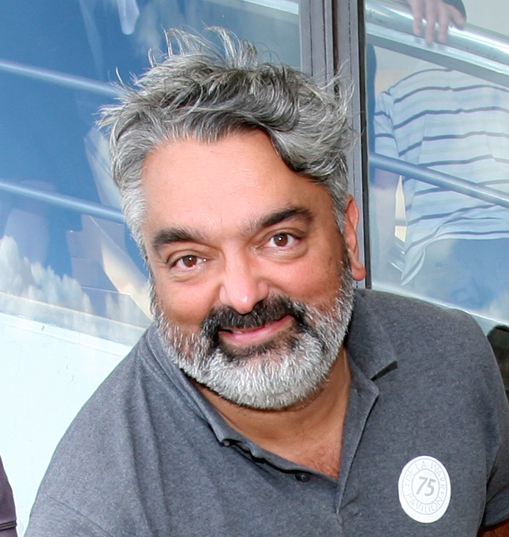Facebook: Don’t give gifts, share profits

Mark Zuckerberg’s much-discussed future of Facebook ‘manifesto’ has lots to say about ‘community’ and a little telling detail about ‘journalism’, but not enough about putting the two together.
For if you think big city media has suffered as Facebook hoovers up ad revenues, it is as nothing as to the effect it has on local media. The US analyst Steven Waldman cites figures giving 25 per cent of Facebook’s digital advertising income coming from local businesses, money previously spent on advertising in local media.
Facebook & Google’s ability to target audiences cannot be beaten, and their attractiveness to local businesses will only grow. Zuckerberg understands what his mega-corp is killing. “A strong news industry is also critical to building an informed community,” he said. Local news provision can be directly correlated with the kind of local civic engagement he says the world needs.
Of the $59 billion spent on all digital advertising in 2015, $36 billion went to Facebook and Google. This has led, not unreasonably, to calls from Waldman, and Emily Bell of the Tow Centre, for some of that eye-watering income to be shared directly with independent media and their working journalists.
Some of it already is. Both Google and Facebook sponsored the work of the free speech charity Index on Censorship when I worked there. Facebook has opened a Journalism Project of its own, stating its interest “in exploring what we can build together with our partners to support local news”.
And this year the Google Digital News Initiative is granting 24.3m euro to 124 digital innovators, including small funding for my own research, into a content optimisation app for ‘small media’ and community media activists ‘platform publishing’ on search & social.
Bell suggests that if the leading technology companies donated $1 billion each to an endowment to independent journalism, it would be more significant a contribution than a thousand such scattered initiatives put together. Waldman, the prime author of a US federal sector report on the Information Needs of Communities: The Changing Media Landscape in a Broadband Age, suggests 1% of profits over five years from the two plus Apple and Oracle for an endowment of $4.4bn.
“To be truly independent the endowment would have to be just that, a gift that is managed and administrated by a board of trustees,” writes Bell, Director at the Tow Center for Digital Journalism at Columbia Journalism School, New York.
Naturally I’d welcome more cash support from the tech giants, especially for new tools and techniques for new digital media operators, but I’m not convinced by the argument for giving the lead to a major trust or trusts, as suggested.
US philanthropists and donor institutions, allied with a swathe of European nations and the EU put around $600m a year into independent media development, mainly in the developing world and post-conflict states. The outcomes are inconclusive, the surrounding politics fraught and the results rarely sustainable.
Bell references the founding of the BBC with a Royal Charter in 1922 as a “market intervention” with “vision,” but the days of single grand institutions guiding national media culture are numbered. Like the BBC, the US Broadcasting Board of Governors, established “to inform, engage, and connect people around the world in support of freedom and democracy,” via a similar ‘market intervention’ is continually battered by a hyper-politicised media environment. Facebook and Google both struggle with politics as it is. Far better to leave those fights to media players with real skin in the politics game on the ground — not just money.
A far better deal would be to give the media the advertising income from adverts that Facebook and Google tag to local news, aiming at the same local readers that Facebook already targets.
Local media can’t match the marketing power of the big two’s algorithms to precisely target local audiences with quality local news that engages. Facebook’s “spectacular advertising interface,” as Facebook critic Frederic Filloux readily admits, is the essential place for local business to place local ads. “Its power, reach, granularity and overall efficiency are dizzying.” It’s these local adverts that increasingly sustain local businesses. And local journalism is a local business too.
Better for the big two (US incomes of $19.4bn for Google, $10.2bn for Facebook in 2016) to surrender a billion dollars of that advertising income to new and emerging local and national media. Easily done. Just let them keep 95 percent of the money from ads attached to their work (and perhaps a proportion of advertising targeted at people in their immediate communities, at least until local media catches up in the digital sphere).
I know that the current online advertising model of cash-for-clicks regardless of content has brought social discourse, never mind democratic politics, to its absolute knees. But targeted assistance in the form of bigger shares of ad profits to established professional media ‘practitioners’ is not beyond the skills of the digital media world’s quants, the writers of their near-magic algorithms.
Even my bare-bones prototype algo recognises journalistic quality in its publishers’ provenance — small commitments to transparency, accountability and professionalism that are trackable by network spiders, like a simple contact address that gets responses from the publisher, properly credited images, latest version software on platforms, updated copyright statements, etc. (See also the Trust Project at the Markkula Center for Applied Ethics at Santa Clara University , California).
If the big two really want to keep their largesse visible, as (ahem) tax deductibles for instance, the best universities are those with a fully evolved partnership with the cities and towns that accommodate them. Those with established journalism schools should incorporate — or accommodate — local media services as well. And by local media, not just local papers but the whole panoply. Wherever the audiences already are, that’s where this media needs to be. That’s where it should be paid for.
It wouldn’t be a cure to the ails of the media. but it would at least ease the symptoms while one is found. And it would allow them, and journalism as a whole, more time to acclimatise to change. Better I would say, than trying to develop a strategy of coordinated patronage. It’s much less than they expect to pay in tax to the state; why not pay instead to breathe life back into the information ecosystem that gives quality and value to their principal product. Information

